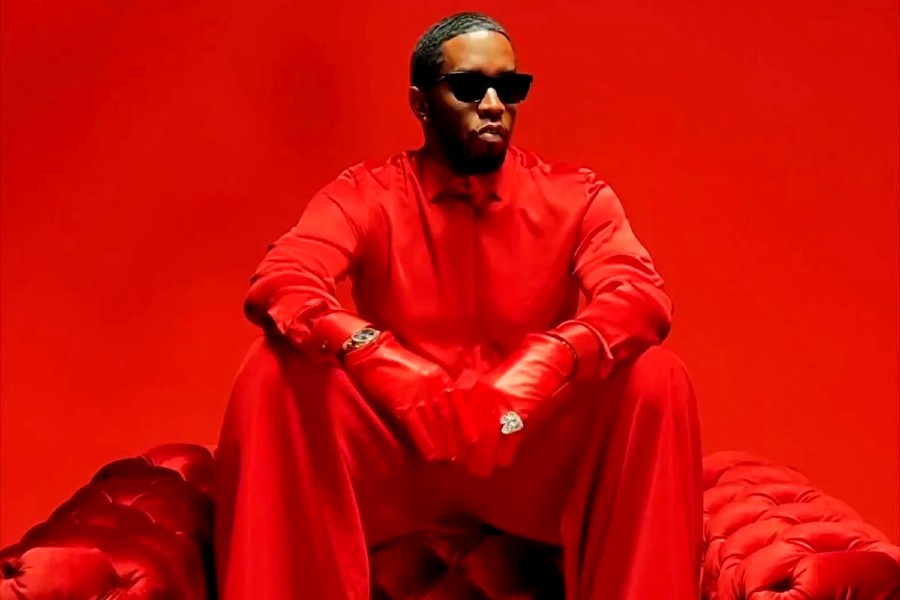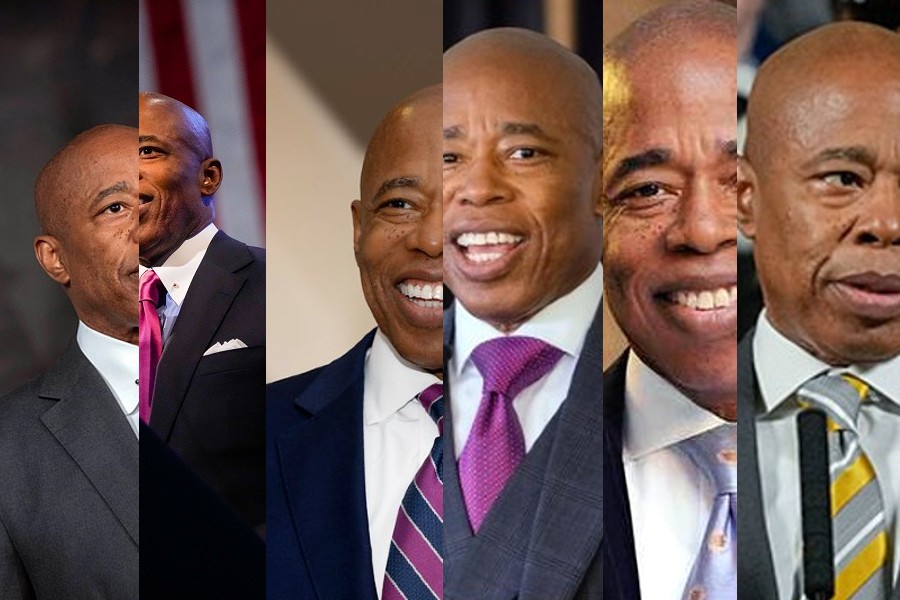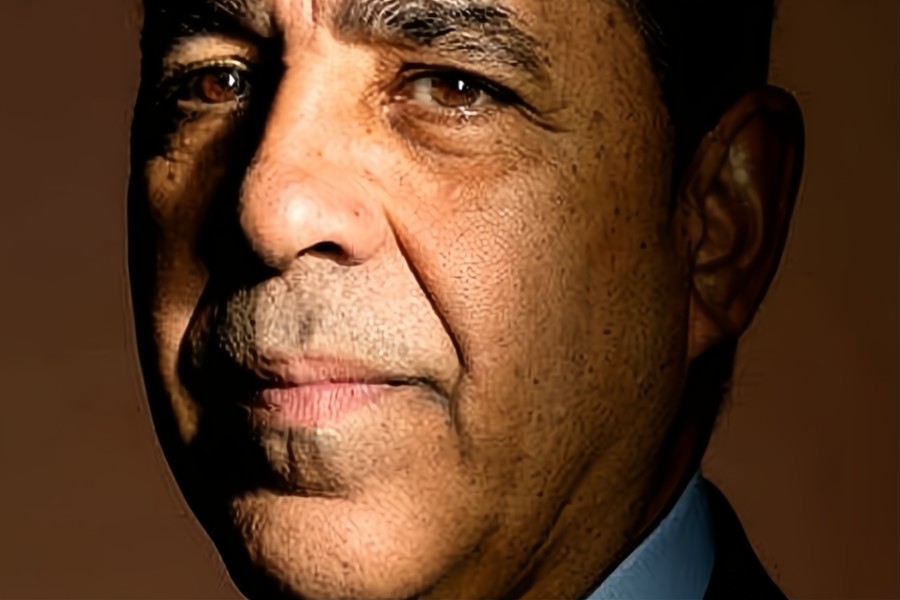 When Barack Obama arrived in Washington almost five years ago, the universal assumption was that the young president—who had, after all, won office by exploiting every connective tool of the national social and electoral network—would run his White House in sharp contrast to the bunkered, hunkered-down George W. Bush.
When Barack Obama arrived in Washington almost five years ago, the universal assumption was that the young president—who had, after all, won office by exploiting every connective tool of the national social and electoral network—would run his White House in sharp contrast to the bunkered, hunkered-down George W. Bush.
Like so much conventional wisdom, that impression has proved dead wrong. In fact, Obama’s resolute solitude—his isolation and alienation from the other players and power centers of Washington, be they rivals or friends—has emerged as the defining trait of his time in office. He may be the biggest presidential paradox since Thomas Jefferson, the slaveholder who wrote the Declaration of Independence: a community organizer who works alone.
In early 2011, when the president’s most trusted political adviser, David Axelrod, left the White House to return to Chicago to run his re-election campaign, Obama made a surprise appearance at Axelrod’s going-away party in a grand apartment off Dupont Circle on a wintry Saturday night. Clad casually in a black jacket, he spoke warmly, even emotionally, of the aide who had done so much to elect him. Then he made his way quickly around a living room full of Cabinet members, other aides, and off-duty reporters, grasping each proffered hand with a single, relentless, repeated greeting: “Gotta go.”
Self-containment is not simply Obama’s political default mode. Self-possession is the core of his being, and a central part of the secret of his success. It is Obama’s unwavering discipline to keep his cool when others are losing theirs, and it seems likely that no black man who behaved otherwise could ever have won the presidency.
But this quality, perhaps Obama’s greatest strength in gaining office, is his greatest weakness in conducting it. And as he ends the first year of his second term, that weakness seems to dog him—and to matter—more and more. At a time when the abrasions of office leave any president most in need of friends, Obama is the capital’s Lonely Guy.
Obama’s self-evident isolation has another effect: It tends to insulate him from engagement in the management of his own administration. The latest round of “what did the president know and when did he know it” on the disastrous rollout of Obamacare and the tapping of German chancellor Angela Merkel’s cell phone raised troubling questions: Were Obama’s aides too afraid to tell him? Was he too detached to ask? Or both? At the least, such glaring failures cast fresh doubt on Obama’s invariable assurance to those around him in times of trouble: “I got this.”
It is impossible to know whether Obama’s go-it-alone approach is instinctual or learned, but he comes by it honestly—and painfully. From a far earlier age and to a far greater degree than is generally understood, Obama has always been alone. He was abandoned not only by his black African father, whom he later met just once at age 10, but also by his white American mother, who left him as a teenager with her parents in Hawaii to pursue graduate fieldwork in anthropology in Indonesia. At an age when most adolescents are grappling with how to break away from their families, Obama’s had crumbled away from him.
“Away from my mother, away from my grandparents, I was engaged in a fitful interior struggle,” he would write in Dreams from My Father. “I was trying to raise myself to be a black man in America, and beyond the given of my appearance, no one around me seemed to know what that meant.”
Give Obama credit for figuring that out, and for rising beyond even the wildest imaginings of his self-reliant youth. If he had chosen to be a novelist or neurosurgeon, an airline pilot or an atomic engineer, the very qualities of self-sufficiency that even some of his strongest supporters find so frustrating would be an unalloyed asset. But in a politician—above all, in a president—such qualities are confounding and, at times, crippling.
“He never needed anyone to affirm his value,” one of his longest-serving advisers told me, “and for that reason, I’m not sure he understands what it would mean to provide a little affirmation to another politician. Because it wouldn’t mean much to him.”
Obama is far from the first president—or the first suddenly world-famous figure—to keep his own counsel or to rely on the tightest possible circle of longtime advisers and old, close friends. More than 20 years ago, when Mario Cuomo was seen as the Democratic Party’s best hope for taking the White House, one knowledgeable New Yorker assured me that Cuomo would never run, because he could never bring himself to trust the number of people required to undertake an effective campaign. In February 2007, the week Obama declared his candidacy, his confidante Valerie Jarrett told me that she had warned him at a backyard barbecue in Chicago the previous fall, when his book tour for The Audacity of Hope was morphing into a presidential campaign, “You’ll never make any new friends.” Obama has since worked overtime to prove the prescience of Jarrett’s view.
Nor is Obama the first president to disdain the circular, self-important, too-easily-distracted-from-what really-counts culture of the nation’s capital. In his new biography of Woodrow Wilson, A. Scott Berg notes that Wilson told his second press conference after taking office in March 1913, “The only way I can succeed is by not having my mind live in Washington. My body has got to live there, but my mind has got to live in the United States, or else I will fail.” But Wilson did use his physical presence in Washington to work his will, becoming the first president since John Adams to address Congress in person, and doing so repeatedly—and persuasively, at least in the early part of his tenure. He held some 60 press conferences during his first eight months in office.
The structural partisan realities of modern American politics are such that no one believes that Obama could really do himself any good by inviting John Boehner to share even a magnum of his favorite Merlot, if only because the recent government shutdown and debt-ceiling crisis showed that Boehner can barely control his own hotheaded Republican caucus, much less strike a binding bipartisan deal with the White House. On the other hand, it’s hard to imagine that Obama did not do himself at least some real harm in September by abruptly canceling the annual congressional picnic at the White House—which had already been postponed from June—on the grounds that members would be too busy considering the president’s request for authority to use force in Syria. The rain check was delivered in a terse, graceless, 53-word e-mail to Capitol Hill offices, announcing that “[t]he President and Mrs. Obama look forward to welcoming Members of Congress and their immediate families at the Congressional Holiday Ball in December.” Immediate families. Such a friendly, legalistic ring.
No one in Washington is afraid of Obama. The Senate’s newest Democrat, Edward Markey of Massachusetts, voted “present” on the Foreign Relations Committee’s resolution endorsing the use of force in Syria, more concerned about being out-of-step with his liberal home-state colleague Elizabeth Warren than about offending the commander in chief. Liberal Senate Democrats leapt at the pain-free chance to block Larry Summers, Obama’s first choice to head the Federal Reserve, and even a moderate like Jon Tester of Montana, whose vote Obama might well have won, let it be known that no one from the administration had so much as been in touch with him until two days before Summers withdrew his name from consideration—when Tester tersely informed the White House that he would vote no.
Indeed, however he treats his enemies, Obama could work harder to get by with a little help from his friends. Throughout his tenure, he has generally refused to adopt the practice of every president since at least Gerald Ford by posing for pictures with his guests at the more than a dozen White House holiday parties (except in the case of the receptions for Congress and the White House press corps, who could be counted on to make a real fuss).
In 2009, in Obama’s first year in office, my wife and I found ourselves trapped in the Blue Room, next to one of the president’s most important early boosters and major fund-raisers, when Obama’s disembodied amplified voice suddenly rang out and the crowd rushed through a doorway to the mansion’s entry hall, blocking our view. The president had paused with his wife, Michelle, on the bottom steps of the Grand Staircase behind a velvet rope to make brief remarks and shake the few hands that could reach him, before retreating back upstairs. “Can you see him?” the graybeard asked as we craned our necks over the crowd. The answer was no.
In late September, Obama attended a “dinner” fund-raiser for high donors to the Democratic National Committee at the super-luxe Jefferson Hotel a few blocks from the White House. Each of the two dozen-odd guests had contributed $32,400, the maximum allowed by law. The president’s motorcade left the White House for the hotel at 4:19 p.m. and was back at the White House by 5:25. The price of the encounter: about $540 per donor for each minute of the president’s time—at an hour when the only other people eating dinner in Washington were doing so in nursing homes. How much fun could that be—for anyone?
Successive flights of frustrated senior aides to both the president and the First Lady have battled the Obamas’ persistent assumption that supporters (and staffers, for that matter) don’t need to be thanked—a battle fought largely in vain. Five years into their tenure, the couple has a social reputation few would have envisioned when they came to town: more standoffish than the Bushes, and ruder than the Clintons.
Invoking Lyndon Johnson’s legislative legerdemain as a counterpoint to Obama’s clumsiness in congressional relations has become a tired trope, if only because Johnson was dealing with a Washington so radically different from today’s, one in which 27 of the Senate’s 33 Republicans voted for the Civil Rights Act of 1964. But it is a stubborn fact that Johnson had breakfast at the White House with the Democratic congressional leadership like clockwork every Tuesday morning. Obama has never had a standing date with Harry Reid or Nancy Pelosi, and members of Congress routinely complain that they seldom see even the official White House liaisons theoretically responsible for lobbying them. There is valuable intelligence to be had from even committed foes. During the long filibuster of the civil-rights bill, as the secret recordings of his telephone calls reveal, Johnson repeatedly reached out to hostile Southern segregationists, simply so he could know what was on their minds, judge the intensity of their opposition—and see how he might help them (and they him) in other ways.
On Syria, Obama clearly did not run the congressional traps. Having announced—on his own—that the use of chemical weapons would constitute a red line requiring an American response, he suddenly decided in September to seek congressional approval without any real count of the Democratic caucus. And he made up his mind not in deliberations with his secretaries of state or defense but after a walk around the White House lawn with his chief of staff Denis McDonough—an adviser since his Senate days—before informing a handful of other senior aides of his decision.
And then there is golf. Every president since William Howard Taft has played the game, with varying degrees of skill and pleasure. Johnson hated it, and played only so he could talk shop and twist arms with those who did. Woodrow Wilson played only with a close, carefully chosen circle, forbade any talk of business, and never played a second round with anybody who broke that rule. Obama has taken a page out of Wilson’s book, invariably competing in a foursome with the same retinue of junior aides and old friends—most of whom are better than he is and whose seemingly sole mission is to sharpen the president’s own game.
When he was White House chief of staff, Rahm Emanuel tried in vain to get Obama to play golf with a business titan or two. A match with John Boehner was finally arranged only in 2011, with all the buildup and anticipation of a diplomatic summit—a show exercise, a shadow play. It never had a chance of producing any kind of meaningful connection, in the way that repeated, casual, low-stakes outings might do. (And speaking of summits, Obama has no relationship with any foreign leader that is remotely akin to Ronald Reagan’s with Margaret Thatcher, or Bill Clinton and George W. Bush’s with Tony Blair. The scandalous phone-tapping imbroglio—even if the fault of the Bush administration—now makes it unlikely that he ever will.)
For Wilson, who once acknowledged shooting 146, the appeal of golf was that “each stroke requires your whole attention and seems the most important thing in life,” as he once wrote a friend, adding, “I can by that means get perfect diversion of my thoughts.” Anyone could forgive Obama for wanting to take his mind off his day job. But he seems blind to the ways in which mixing business and pleasure might actually make his day job easier.
Obama told his biographer David Maraniss that he had learned a lot during his time as a second stringer on his high school basketball team in Hawaii about the value of “being more team-oriented and realizing that not everything is about you.” In practice, he often seems unaware of that truth. “I think that I’m a better speechwriter than my speechwriters,” Obama told his 2008 campaign political director, Patrick Gaspard, now his ambassador to South Africa. “I know more about policies on any particular issue than my policy directors. And I’ll tell you right now that I’m going to think I’m a better political director than my political director.”
Such a statement suggests that Obama has least some level of self-awareness about this tendency. There is less evidence that he has done anything to really curb it.
Bobby Baker, the former Senate aide who was regarded as one of mid-century Washington’s greatest wheeler-dealers, once dismissed Adlai Stevenson’s political skills in words that could apply to Obama. Stevenson, said Baker, “reminds me of a Senator that can get 20 votes, and I think that was his weakness. He made beautiful speeches, but he didn’t follow through. I mean, you have to pay attention to the troops. And he was a loner.”
What do you do when your greatest strength is also your greatest weakness? Some leaders, like Bill Clinton, have managed to compensate, through sheer acts of will. Clinton’s restless, expansive impulses made him the political boy wonder of his generation, and also led him into personal and political peril; but at his best moments he could channel his impulses into effective stewardship of foreign and domestic policy. Others have been unable to adapt. The greatest asset of Woodrow Wilson (like Obama, a former professor, and one with even less experience in government) was his unyielding high-mindedness and righteous zeal. But that is what ultimately undid him in his poisonous battle with the Senate over its failure to accept the League of Nations after World War I.
Obama has shown himself to be resilient and adaptive when circumstances demand it. He bounced back from his stunning defeat in the New Hampshire primary in 2008 to best Hillary Clinton in a long slog of a primary campaign. Last year, after his dismal first debate performance against Mitt Romney, he came alive again in the second. He has made no such adaptation in the face of incessant demands from even some of his strongest supporters that he work harder to play well with others.
In fact, Obama himself has made it plain that he has limited interest in the performance-art aspects of modern politics. “I am wired in a different way than this event requires,” he told disappointed aides during his stubbornly lackluster preparation for the second debate, according to Double Down: Game Change 2012, by Mark Halperin and John Heilemann.
Just how someone wired the way Obama is got so far in politics remains a puzzlement. His aloneness is generally regarded as springing from a surfeit of self-confidence, a certitude that he really does know best. But at least one former senior administration adviser has argued that the trait springs from the opposite source: a basic insecurity on the president’s part, one that keeps him from surrounding himself with strong intellectual rivals in either the White House or the Cabinet. Competent they may be, but with Hillary Clinton gone there is no figure of unquestioned stature. He has quietly purged from his inner circle those most likely to stand up to him, and barely suffered the manful efforts of his latest chief of staff, McDonough, to encourage him to reach out to the remaining slivers of the Republican sanity caucus in Congress.
 Whatever the origin of Obama’s penchant for solitude, he shows no sign of changing his ways, which means he does not believe he is doing anything wrong. Obama’s stubbornness has unquestionably benefited him in the past, when he stuck to unpopular programs—from the auto bailout to the economic stimulus plan—that ultimately bore fruit (and, in the case of the Detroit bailout, may have helped save his re-election). Obama has always insisted that he is playing a long game. The problem is that when everyone else in Washington is still playing a short game, the president sometimes has to play on their board.
Whatever the origin of Obama’s penchant for solitude, he shows no sign of changing his ways, which means he does not believe he is doing anything wrong. Obama’s stubbornness has unquestionably benefited him in the past, when he stuck to unpopular programs—from the auto bailout to the economic stimulus plan—that ultimately bore fruit (and, in the case of the Detroit bailout, may have helped save his re-election). Obama has always insisted that he is playing a long game. The problem is that when everyone else in Washington is still playing a short game, the president sometimes has to play on their board.
Whether Obama’s unyielding above-it-all approach can sustain him in the inevitable shoals of a second term remains very much in doubt. When he announced that he would seek congressional approval for use of military force in Syria—even as he contended that he had the authority to act alone—he said, “Our democracy is stronger when the president and the people’s representatives stand together.”
So it is, and any president is stronger when he has the people themselves behind him. Obama’s reservoir of public goodwill remains stable but shallow. Americans still find him likeable, but he may find us not quite likeable enough.
Become a Harlem Insider!
By submitting this form, you are consenting to receive marketing emails from: . You can revoke your consent to receive emails at any time by using the SafeUnsubscribe® link, found at the bottom of every email. Emails are serviced by Constant Contact



















